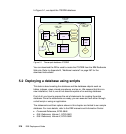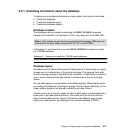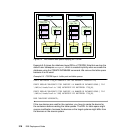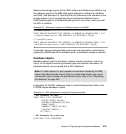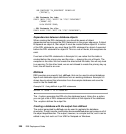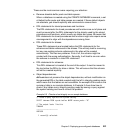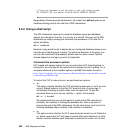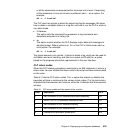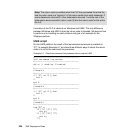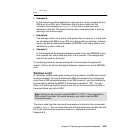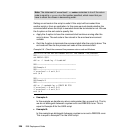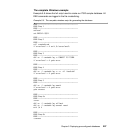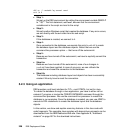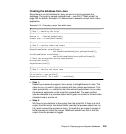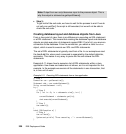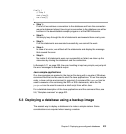
224 DB2 Deployment Guide
Invocation of the CLP is identical on Windows and UNIX. The only difference
between Windows and UNIX is how the return code is checked. We discuss how
to perform error handling on each platform and give a full example for the
Windows platform.
UNIX script
On the UNIX platform the result of the last executed command is available in
“$?”. In example Example 5-7 we show three different ways to check the return
code of a call to the command line processor.
Example 5-7 Check the command line processor return code on UNIX
#------------------------------------------------
#Call the command line processor
#------------------------------------------------
db2 -o- -l itsodb.log -f itsodb.ddl
#------------------------------------------------
# Example A
#------------------------------------------------
if [ "$?" -eq "4" ]; then
exit 4
fi
exit 0
#------------------------------------------------
# Example B
#------------------------------------------------
if [ "$?" -ge "4" ]; then
exit 4
fi
exit 0
#------------------------------------------------
# Example C
#------------------------------------------------
case “$?” in
"0" | “1” | “2” | “3”)
exit 0;;
"4" | “5” | “6” | “7”)
exit 4;;
"*")
Note: The return code is available when the CLP has processed the entire file,
and the return code is a “logical or” of the return codes from each statement. If
some statements returned 2, other statements returned 1 and the rest of the
statements were successful (return code 0) then the return code for the entire
file is 3.



